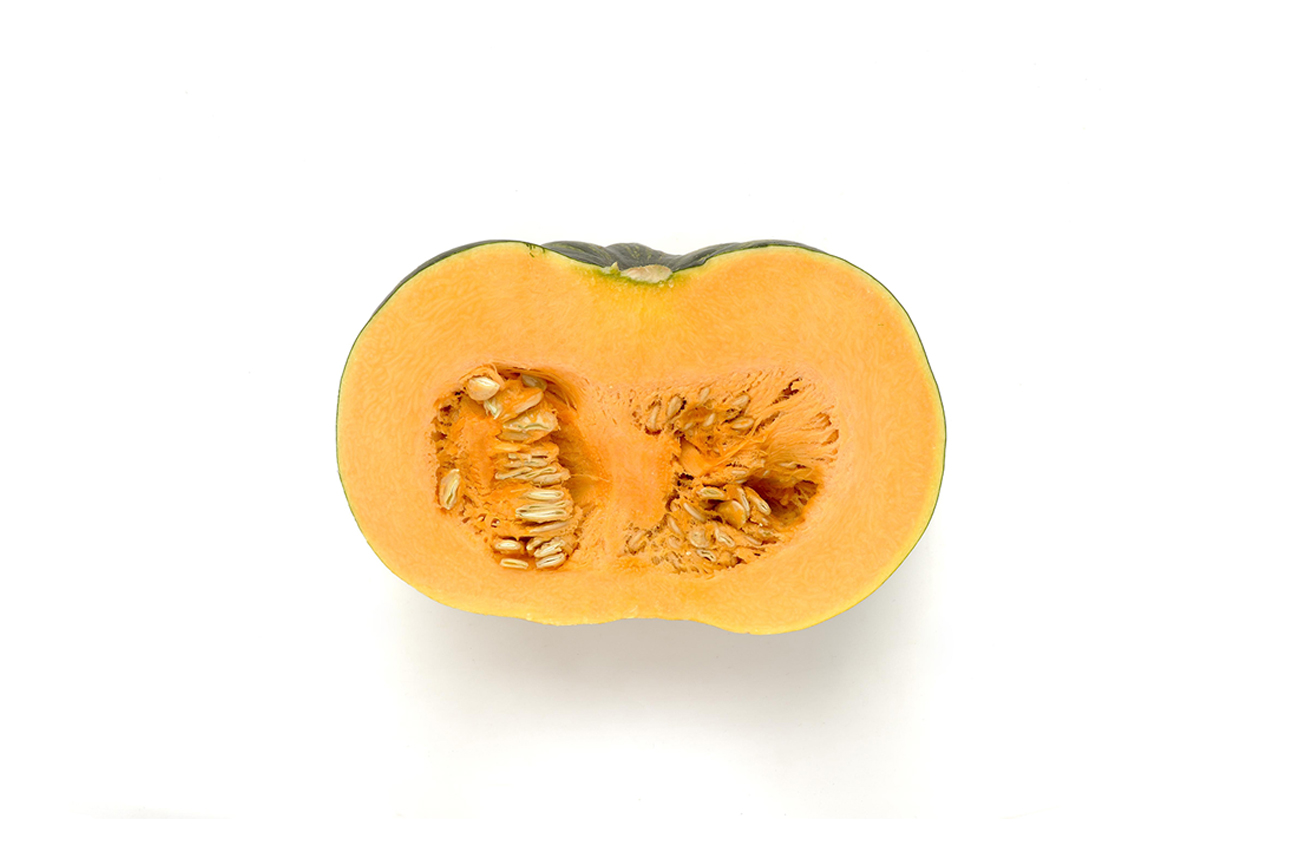Pumpkin is a plant, originally from Central America, part of the cucurbit family, similarly to winter melon, watermelon and cucumber.
It has a low energy content (9 kcal per 100g) and has several types of carotenoids in its pulp (predominantly beta-carotene), which have antioxidant activity and give pumpkin its orange and yellow colors. Beta-carotene is partially converted into vitamin A in the body.
Pumpkin also provides bioflavonoids – substances that block hormone receptors linked to cancer development – and sterols, that the body converts into vitamin D. It also has interesting amounts of potassium as well as other vitamins and minerals such as iron, calcium, magnesium and vitamins B and C.
Pumpkin is a very versatile ingredient that can be used in appetizers, soups, main courses and desserts.


